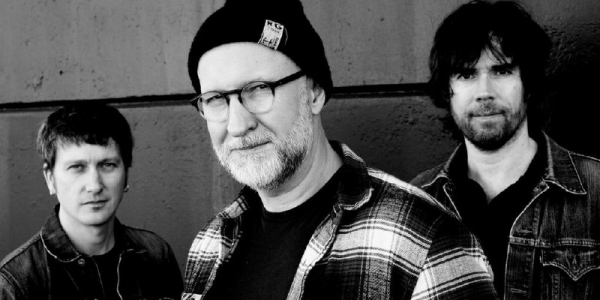“We still like playing a lot of the songs off Copper Blue. We’re not real fond of playing it start to finish anymore, that’s the only difference. There’ll be plenty of Copper Blue, plenty of Silver Age, plenty of deep cuts going way back – the Hüskers and solo stuff,” he says.
Mould’s focus was returned to the past by the 20 year anniversary of Copper Blue (as well as writing the autobiography See A Little Light: The Trail Of Rage And Melody) which prompted him to relive the record on stage from start to finish.
“I’d been working on the autobiography starting in the fall of ’08 and I stopped writing music then. The better part of the next three years was pretty much writing the book and not much else. I knew that the 20th anniversary was coming up and we made plans to re-issue the records and bring them back to life for a little bit. Even Records in Europe and Merge Records in America both put out different editions of the catalogues. It got people thinking about that record again. It was nice to get people’s attention back.”
Writing the book and re-issuing the records involved thoroughly searching through his past but he hasn’t attempted to revisit his younger self when playing the album live.
“It’s strange, I don’t think about whether I’m revisiting being young or not when I’m up there. I pretty much just do what I do. A lot of those songs were written in 1991 and I was actually out doing solo acoustic touring – and that was actually the first and last time that I’ve been to Australia. There’s a way that I play them by myself and there’s a way I tour them with a three-piece and it’s been great to go back in three-piece and play it that way. It’s a lot more aggressive guitar so as a guitar player it’s really fun for me to come at it from that direction,” he explains.
Even though he started making records 30 years ago Mould hasn’t been outgrown by his contemporaries and Silver Age maintains the potency of his earlier successes. Mould discusses the fluidity of personal circumstances, which continue to supply new creative material.
“I think the angles and the perspective has changed, it always changes, and I think that’s what makes each record a little bit different. If I look back to the ’80s, at Hüsker Dü, that was a very angry frustrated voice. That’s what people heard in there and that’s what they connected with. Then I go to the first solo record Workbook – it sounds like a person who was isolated for a year and a half up in the country. Environment is so important to what a record becomes, you know; where you write it, what the circumstances are. I can control that to some degree but life is pretty unpredictable and the records are good documents.”
Hypocrisy and inanity in contemporary society have long been core concerns for Mould. He recently moved from Washington D.C. to San Francisco and he admits that the 2012 US presidential campaign was a challenging sequence of events to observe.
“We just went through a very, very hard, very, very rigorous election over here last year. Obama has been, for the first four years of his presidency, dealing with people who just got in his way and made it impossible for him to make any real progress.”
However, Mould believes that the attitudes of people in America are largely becoming more liberally accepting and as a result the base values of rigid conservatives are revealed.
“The very conservative side of America, they really exposed themselves last year. A lot of politicians who were pretty far right did some really ridiculous things, very degrading to women. A lot of times they use gays and lesbians as a ledge in America – when in doubt try to turn people on gays. They’re losing the battle too, people are moving on. People are leaving that stuff behind and I think people are getting a better sense of the brevity of our lives, our time on earth,” he surmises.
In his early career Mould was inclined towards writing music by an urge to express discontent at dishonesty and social injustice. More recently strong personal ambitions, and the impetus laid by other musicians, has compelled him to further the parameters of his artistry.
“When I was younger I was angry, that was my voice. Now a lot of what keeps me writing is being inspired by other people’s music. I need to write songs, I need to make records and they’re never perfect. A lot of us who write and make music for our whole lives we’re just chasing something, chasing perfection and you never get it. Nobody ever really gets there. I love putting words and music together. It’s a challenge, it’s something I can do in my sleep, it’s painful, it’s freeing, it’s a lot of different things. It’s an interesting form of magic.”
BY AUGUSTUS WELBY

